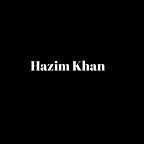“Navigating the Complexities of the Red Sea: A Tale of Geopolitics and Conflict”
Introduction:
The Red Sea, a vital global trade route, witnesses about 10% of the world’s trade and 20% of its oil transportation. Yemen, situated along this strategic route, has been embroiled in a civil war since 2014, with Houthi tribes controlling the southern part.
The Emergence of Houthi Power:
The Houthi tribes, in power for nine years, have engaged in conflicts with both the Saudi-backed Yemeni government and Saudi aircraft. Possessing a formidable military with thousands of missiles, drones, rockets, and tanks, they control Hudaydah, a crucial port in southern Yemen.
Houthi-Israel Conflict:
In a surprising turn of events, the Houthis declared war against Israel on November 2. Initially causing minor damage, they escalated by seizing the Galaxy Leader, an Israeli billionaire’s ship, on November 20. The ship’s ownership discrepancy led to international tensions, further complicated by the geopolitical dynamics of the Red Sea.
Strategic Importance of Yemen’s Coast:
Yemen’s coastal position of about 300 kilometers plays a crucial role in controlling the Red Sea trade route. The narrow Nero Passage gives the Houthis the ability to disrupt maritime activities, posing a challenge to ships heading to and from Israel.
International Response and Diplomatic Efforts:
Japan, Britain, and Israel have mobilized diplomatic efforts to secure the release of the seized crews. With Russia and Iran supporting the Houthi faction, the situation has become a new crisis intertwined with the ongoing Israel-Gaza conflict.
Media Coverage and Shifting Public Opinion:
The Israel-Gaza conflict has garnered extensive media attention, showcasing the brutality of the situation. Social media, particularly platforms like TikTok and X, has become a battleground for information and perspectives. The younger generation, influenced by these platforms, questions established narratives, especially regarding U.S. support for Israel.
Soft Power Dynamics and China’s Influence:
The decline of U.S. soft power is evident, with China adopting a neutral peace-breaking model that challenges traditional carrot-and-stick diplomacy. The Abraham Accords, a recent U.S. peace deal, has faced setbacks, highlighting the changing dynamics of global influence.
As the world grapples with complex geopolitical issues and the potential for major conflicts, the need for effective leadership to avert catastrophe becomes paramount. The power shifts, media influence, and evolving diplomatic strategies shape a new era where the world order established post-World War II may be facing significant challenges.
Escalating Tensions in the Gaza-Israel Conflict:
The Gaza-Israel conflict, marked by its one-sided brutality, has drawn significant criticism from various quarters. Western media, traditionally aligned with Israeli policies, is experiencing a shift as social media brings forth alternative perspectives, challenging the established narratives.
Controversial Claims and Media Scrutiny:
Israeli claims of targeting Hamas command centers within hospitals faced scrutiny from major media outlets like BBC, France 24, and CNN. The credibility of evidence provided by Israeli forces was questioned, highlighting the importance of media in shaping public opinion.
Social Media’s Role in Shaping Views:
The younger generation’s exposure to real-time information on platforms like TikTok has challenged the traditional narrative surrounding the conflict. A viral letter from Osama Bin Laden to the American people, shared millions of times on TikTok, shed light on the extent of U.S. support for Israel and sparked a reevaluation among American youth.
Social Media Platforms and Political Influence:
The influence of social media on political dynamics is evident in the clash between established Western platforms and emerging alternatives like X, owned by Elon Musk. Musk’s commitment to free speech and allowing diverse perspectives on his platform has triggered a backlash from major advertisers and pro-Israel groups.
China’s Soft Power and Changing Global Dynamics:
China’s neutral peacebroking model, demonstrated in its efforts to reconcile Iran and Saudi Arabia, marks a departure from the traditional U.S. approach. This shift in global dynamics challenges the dominance of the U.S.-led world order.
Elon Musk’s Stance and the Battle for Free Speech:
Elon Musk, the owner of X, faces challenges from Western business establishments for endorsing what they perceive as anti-Semitic posts. Musk’s commitment to free speech, in contrast to other major social media platforms, has intensified the battle between different ideological approaches.
Conclusion and Global Leadership:
The world finds itself at a crossroads, with the old world order undergoing seismic shifts. Soft power, diplomatic strategies, and media influence play pivotal roles in shaping global perspectives. As the younger generation questions established norms, the need for effective leadership to avert major conflicts becomes increasingly apparent. The unfolding events in the Gaza-Israel conflict, coupled with broader geopolitical changes, underscore the complexities of navigating a rapidly evolving global landscape.
